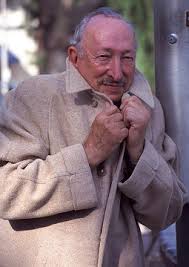 For caregivers to older loved ones in northern climates, winter is more than just a warning about dressing for the cold. Especially with the recent round of record cold temperatures across two-thirds of the nation, here are some recommendations for assuring that your older loved one will be safe throughout the rest of this season.
For caregivers to older loved ones in northern climates, winter is more than just a warning about dressing for the cold. Especially with the recent round of record cold temperatures across two-thirds of the nation, here are some recommendations for assuring that your older loved one will be safe throughout the rest of this season.
It is the Ice. It is not just the cold that can be a threat to your older loved one’s safety, it is the slippery surfaces that accompany p[lunging temperatures. With about 1.6 million Americans visiting the ER because of a fall each year, it is important to prepare your loved one for treacherous walkways. Encourage your loved one to think of going outdoors as an athletic event; wear shoes that are appropriate for the conditions and do some stretching before heading out.
Skin Protection. Older skin is both thinner and drier which means that an older person will bruise or cut more easily. They also may be more prone to nosebleeds. All of this encourages keeping indoor humidity a bit higher in order to have skin as prepared as possible for the assault of the cold, dry outdoor air. And boost your older loved one’s inner humidity by encouraging more aggressive hydration with fluids.
Prepare for Outages. Encourage your older loved one to stock up on staples should outdoor conditions get in the way of the weekly run to the store. And should the power go out or the pipes freeze, have them stockpile a few gallons of extra water – just in case. Flashlights with extra batteries along with candles and blankets are also essential back-up, and have a system in place for regular wellness calls by phone as well as from willing neighbors throughout the season.
Keep Warm. This may seem obvious, but remember than an older adult’s sense of feeling is diminished with age or because of chronic conditions like arthritis, diabetes or just poor circulation. Keeping the thermostat at or above 68 degrees F is a good marker, but still be listening in your wellness calls for any sign of cognitive difficulties like slurred speech which could be signs of hypothermia.
Seasonal Affective Disorder (SAD). The long nights and short days of winter can take their toll on anyone, but age has its own way of exacerbating depression. Encourage your older loved one to get out and socialize and be alert to the glum noises of SAD in your regular wellness checks.
All of these general warning signs also should be a reason to reach out to neighbors or programs that can call on an older loved one. Meals on Wheels, for instance, is only partly about food; it also is a way to keep isolated people from becoming even more disengaged. And this may not be just about your older loved one if you are a distance caregiver; check around your own community to see where you can be that neighbor who checks on someone whose day will be just a bit warmer for your reaching out. Take heart – Spring is only a bit more than two months away!
Charlotte Bishop is a Geriatric Care Manager and founder of Creative Care Management, certified professionals who are geriatric advocates, resources, counselors and friends to older adults and their families in metropolitan Chicago. Please email your questions to info@creativecaremanagement.com.





